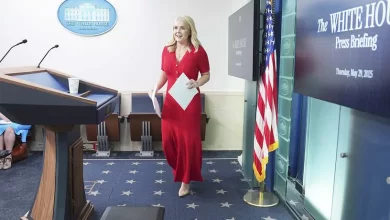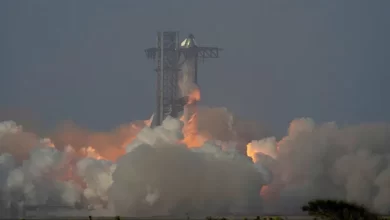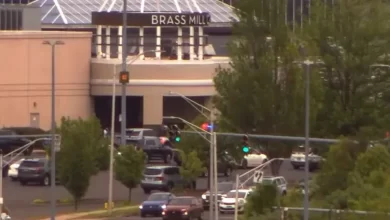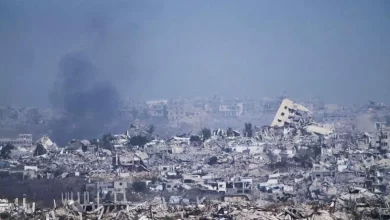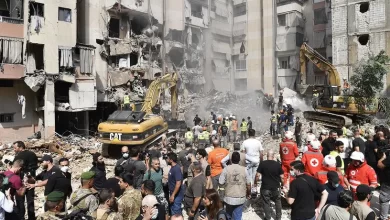Russia accuses US of ‘encouraging terrorists’ after Moscow strike
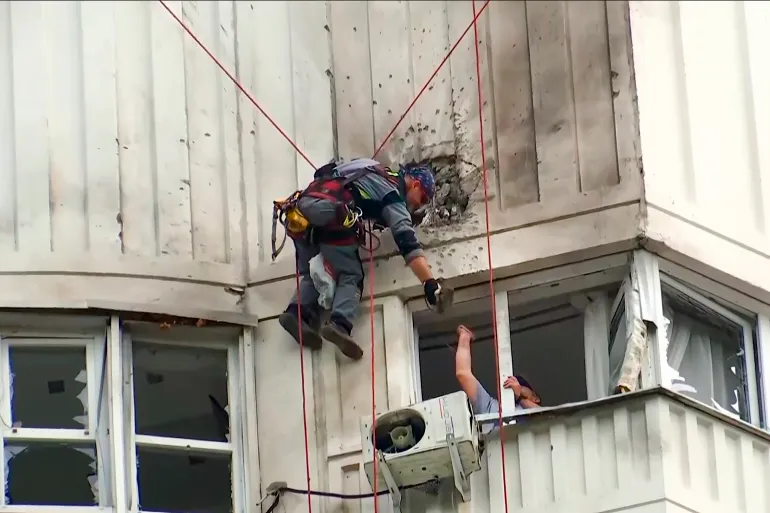
President Putin casts the attack as a Ukrainian attempt to intimidate Moscow residents and says the capital’s air defences will be ‘beefed up’.

The United States is encouraging Ukraine to launch cross-border “terrorist” attacks, a Russian official alleged, after Moscow was hit by a series of drone strikes.
The White House, meanwhile, said on Tuesday it did not support attacks inside Russia, and that it is still gathering information on the incident.
“What are these attempts to hide behind the phrase they are ‘gathering information’?” Anatoly Antonov, Russia’s ambassador to the US, said in remarks published on the Telegram messaging channel.
“This is an encouragement for Ukrainian terrorists.”
Russia has long accused what it calls the “collective West” of staging a proxy war against Moscow by supporting Ukraine with military and financial aid.
President Vladimir Putin also cast the assault, which brought the 15-month war in Ukraine to the heart of Russia, as a “terrorist act”. Ukraine, on the other hand, has accused Russia of “terrorism” for its bombing of Ukrainian civilians, allegations Moscow denies.
A Ukrainian presidential aide denied Kyiv was directly involved in the drone attack on Moscow, but said Ukraine was enjoying watching events and forecast more to come.
Drones target Moscow in rare attack on Russian capital
‘Not designed to do this’
The drone attack on Moscow exposed glaring breaches in its air defences and underlined the capital’s vulnerability, analysts said.
Mark Cancian, a senior adviser with the Center for Strategic and International Studies, noted part of the reason why drones could make it all the way to Moscow undetected was because Russian air defences are mostly focused on fending off more sophisticated weapons.
“They are oriented on missiles, ballistic missiles, regional missiles, aircraft, bombers, but not short-range drones, you know, which might be flying very low over the ground,” Cancian said. “The Russian air defence was just not designed to do this.”
The Russian military will likely move some of its air assets away from the front line to help protect Moscow, Cancian said, a move that would weaken Russian troops in the face of a Ukrainian counteroffensive.
“That’s good for the Ukrainians in the sense that they’re pulling these systems away from other areas where they could be used maybe from front-line units,” he said.
The attack, which lightly damaged three apartment buildings and wounded two people, angered Russia’s hardliners who scathingly criticised the military brass for failing to protect the capital – more than 500km (310 miles) from the front line in Ukraine.
Putin cast the attack on Moscow as a Ukrainian attempt to intimidate its residents. He said Moscow’s air defences worked as expected, but admitted protecting a huge city is a daunting task. “It’s clear what needs to be done to beef up air defences – and we will do it,” the Russian leader said.
Military watchers said the drones used in the attack were relatively crude and cheap, but could have a range of up to 1,000km (620 miles). They predicted more could follow.
‘Flexing their muscles’
Some Kremlin watchers noted Putin’s calm reaction that contrasted with angry statements from Russian hawks reflects his belief the public will not be unsettled by the attack.
“Putin has talked repeatedly about the Russian people’s remarkable patience and tenacity,” Tatiana Stanovaya of the Carnegie Endowment said in a commentary. “No matter how defiant another Ukrainian attack is, Putin doesn’t think that it could provoke public discontent with the government.”
James Nixey, director of the Russia and Eurasia programme at Chatham House, said the drone strikes signalled a growing Ukrainian determination to launch attacks deep inside Russia and he predicted more will come.
“This is not the first and it’s not the last,” said Nixey. “The Ukrainians are in various respects flexing their muscles, seeing what they’re capable of hitting back. It is one more part of the Ukrainian play to ensure they are not just playing defence, but they can play some offence as well.”
Despite loud calls for revenge, the Russian military cannot do much more than what it has done since starting the war in February 2022, Nixey noted.
“The reality is that Russia does have limits in what it can do. It’s got limits on manpower, limits on its finances, limits on its artillery munitions, missiles, drones, everything,” he said. “They’re already expending all their efforts, all their monies, all their treasure, all their blood, if you like, on prosecuting their war in Ukraine.”
Last week, the Russian border region of Belgorod was the target of one of the most serious cross-border raids since the war began, with two pro-Ukrainian paramilitary groups claiming responsibility. The attacks also drew calls for bolstering Russia’s borders.
Leader of cross-border raid into Russia promises more attacks


